Signal Integrity - Crosstalk 🚧
When a signal travels along a signal line, it induces related signals on adjacent signal lines on the PCB board, a phenomenon known as crosstalk. Crosstalk typically manifests as spikes or interference. Crosstalk arises from the coupling of parasitic inductance between transmission lines and can lead to signal distortion.
Crosstalk can be categorized into near-end crosstalk (NEXT) and far-end crosstalk (FEXT).
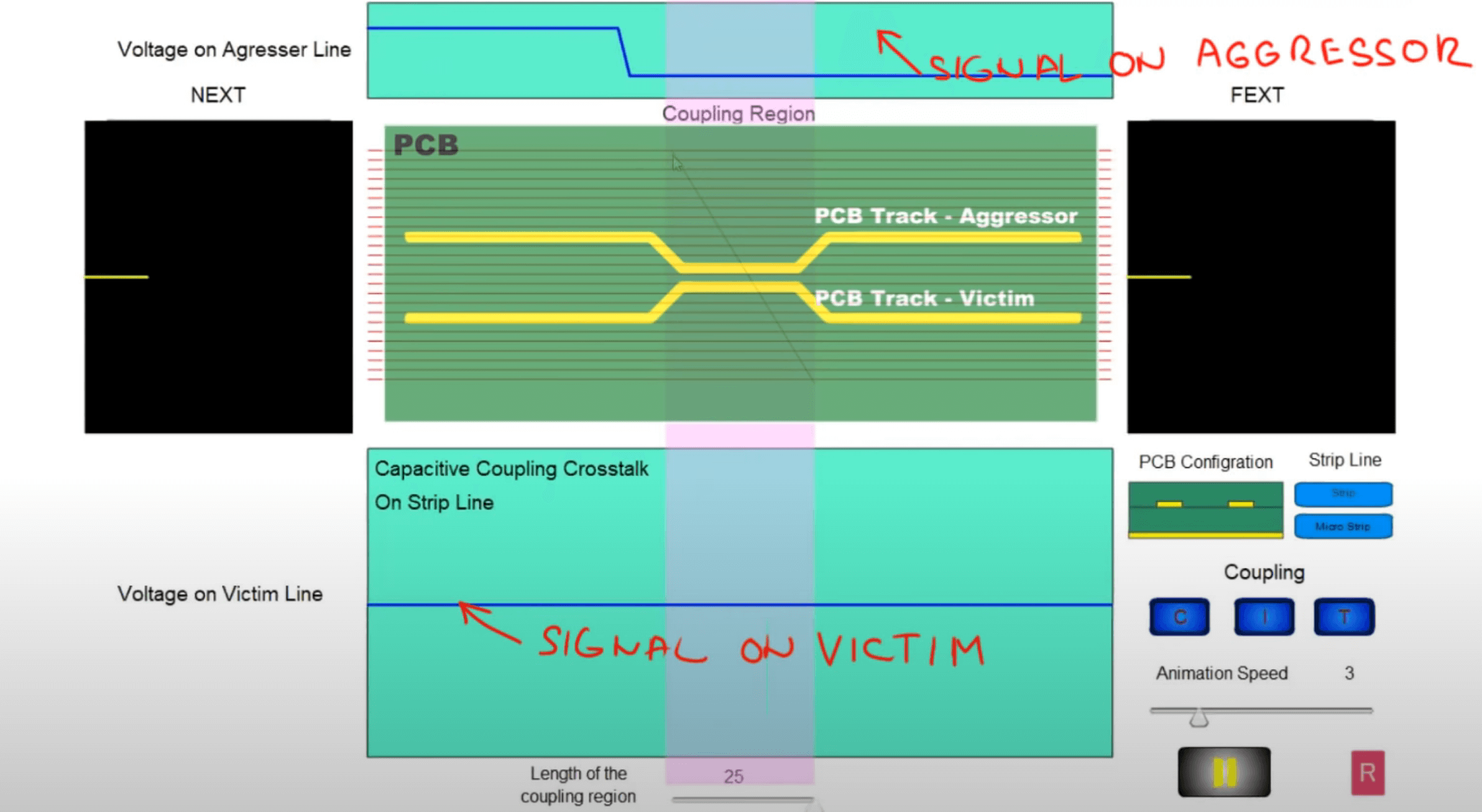
As depicted in the image, an abrupt signal transition occurs on the upper signal line. In the pink area, two conductors are in close proximity (not adhering to the 3W rule), leading to crosstalk. The lower conductor represents the disturbed line.
Crosstalk begins when the transitioning signal enters the interference region (pink area):
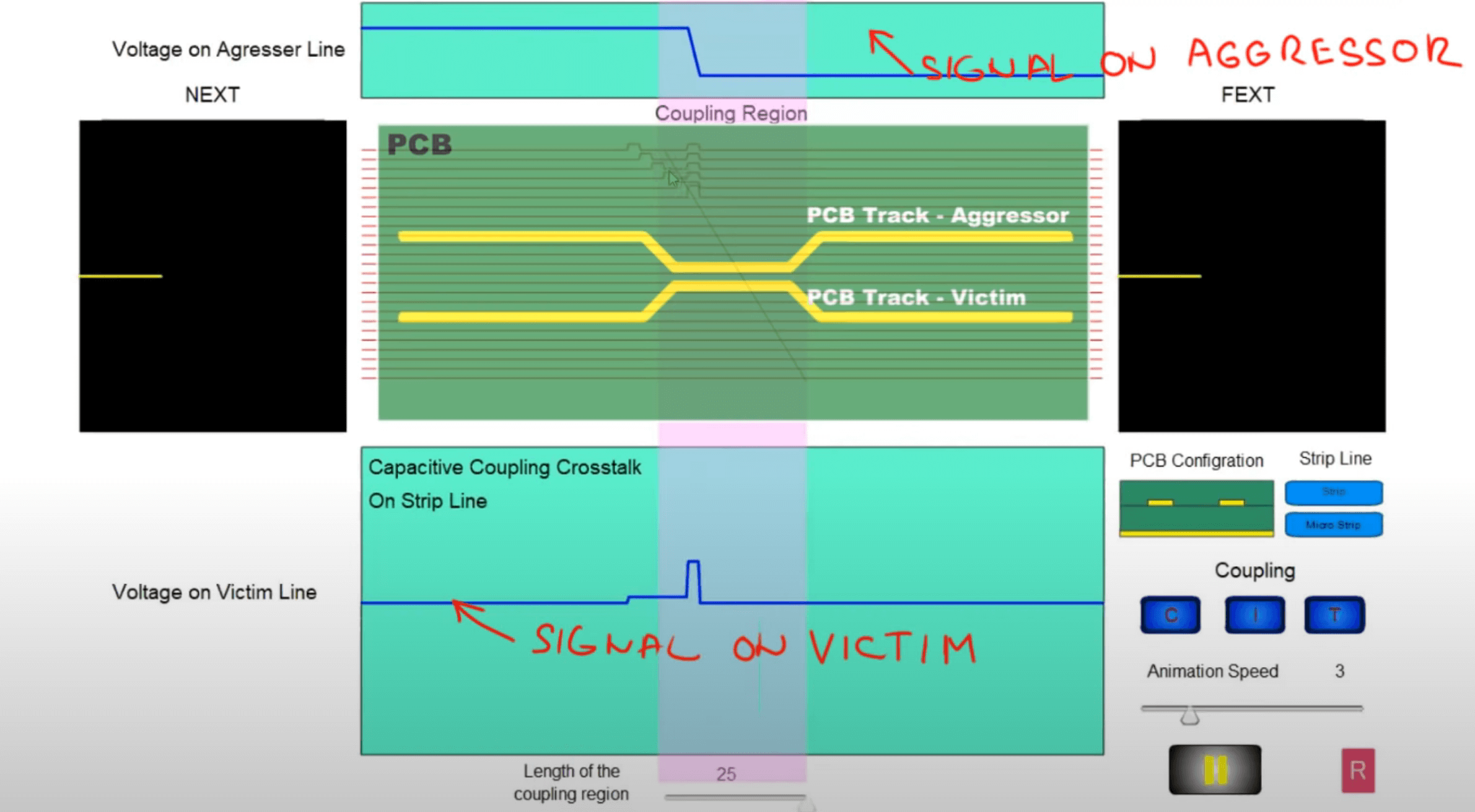
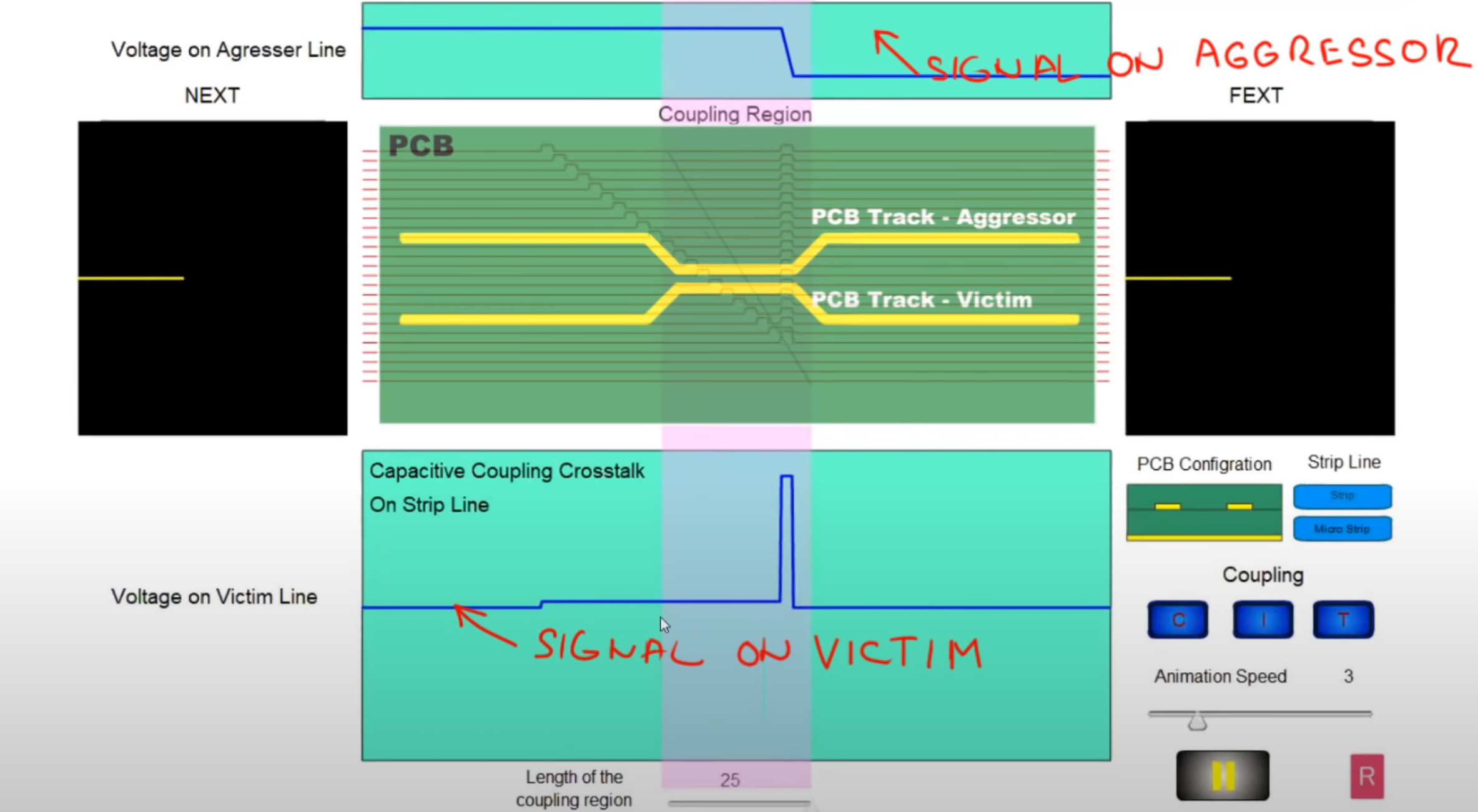
It can be observed that since the source of interference is moving and emitting in two directions simultaneously, the interference waveforms in the same direction as the signal add up as time progresses, while the opposite-direction waveforms remain largely unchanged.
After the transitioning signal exits the interference region, the raised waveforms on the disturbed line start to fade and propagate in their respective directions:
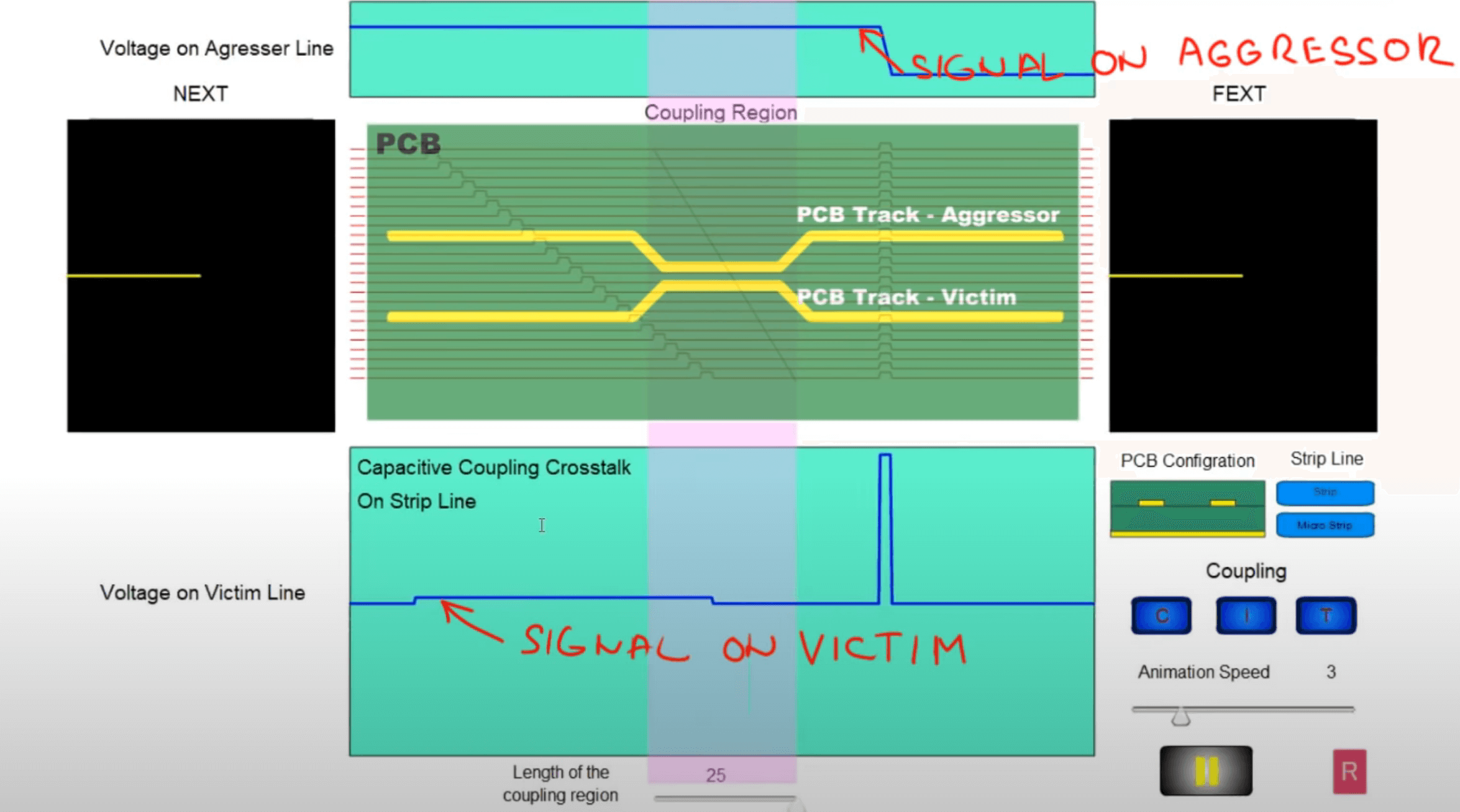
Ultimately, the crosstalk received at the near end and far end is as follows:
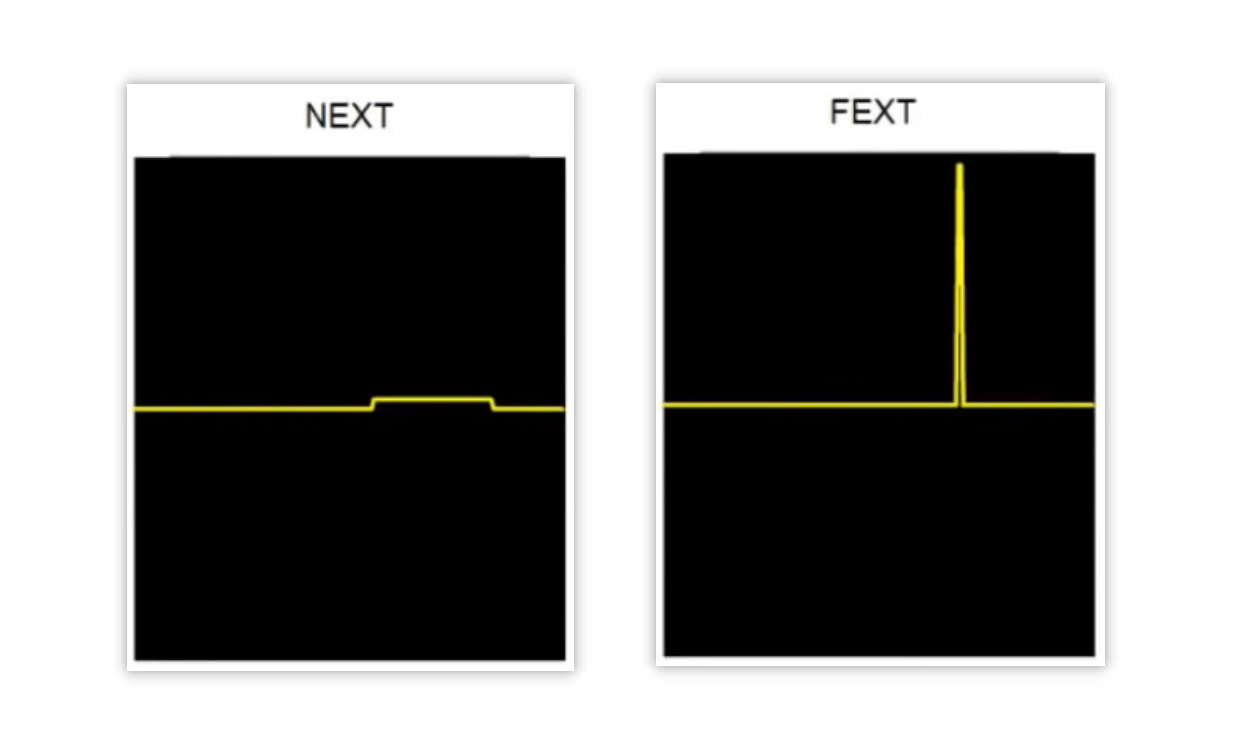
Methods to reduce crosstalk include:
- Increasing trace spacing: Adhering to the 3W rule.
- Reducing the distance between signal lines and ground.
- Minimizing the coupling length of parallel traces.
- Increasing the rise or fall time of signals: If timing constraints permit, this can mitigate the impact of high-frequency signals.
- Employing proper termination techniques: Weaken or absorb signal reflections, thus reducing crosstalk intensity.
References and Acknowledgments
- "Signal Integrity and Power Integrity Analysis"
- "Signal Integrity Unveiled - Dr. Yu's SI Design Notes"
- What Every PCB Designer Should Know - Crosstalk Explained (with Eric Bogatin)
- "Hardware Signal Quality SI Testing Standards"
- Crosstalk Analysis in Transmission Lines
Original: https://wiki-power.com/ This post is protected by CC BY-NC-SA 4.0 agreement, should be reproduced with attribution.
This post is translated using ChatGPT, please feedback if any omissions.